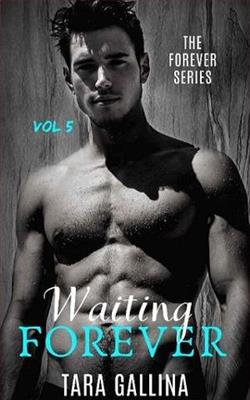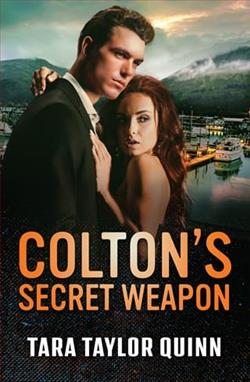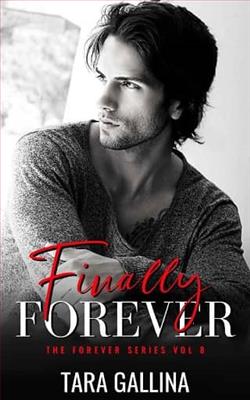Page 7 of Nothing Without You
As her mum drove the Datsun off the ferry, over the gangplank and up onto the street, a group of kids waved to them. They were around the same age as Evie, and sat in a row on a timber pontoon that floated on the water. Fishing lines, held tightly, dangled in the clear blue water below them and Evie thought they looked like locals, not tourists. Like her, they had probably also just started school holidays.
‘Local children,’ Mum said. ‘They look happy. What a great place for a kid to live.’
Evie looked at them enviously. ‘You could go fishing every day. Do you think they live here?’ Evie’s mother pulled the car over for them to watch, and the kids all waved at them again.
The boys wore shorts, their chests were bare, and their white teeth flashed when they smiled at her. A line of dark legs swung above the water, the girls who sat side by side standing out with their flowery short dresses and dark hair., Every so often, one leaned over to look at what was in the water below. They called out to each other, then laughed and shouted when one caught something. When one of the boys caught a large fish, they passed it around, holding it high in the air to show it off.
‘I’d say they live nearby. There are a lot of Aboriginal people who live on the island. The famous poet Kath Walker comes from here. Remember, you learnt some of her poems at school.’
Evie looked at the kids again. ‘I love her poems. They have her book in the school library.’
The kids all stood up now, enjoying having an interested audience. They jigged around, giggling and jostling each other as Evie’s mum pulled away and headed up towards the main road.
‘I wonder if there’ll be any kids near to where we’re staying?’ Evie asked.
‘We’ll see,’ her mother said. ‘It would be nice if there was some young company for you.’
Her mother seemed to have taken on a new disposition and as they drove through the town towards Flinders Beach, she wound her window down and told Evie to do the same. When she turned the radio up and sang along, the sound of Cat Steven’s music filled the car. It felt good to be alone with her and Evie kicked her thongs off and tucked her legs up underneath her bottom.
As they followed the road, they caught glimpses of the ocean between the trees, the water sparkling as the sun hit its surface. Small huts and humpies were scattered through the rainforest that lined the sides of the road, windy tracks leading in through the thick foliage. Towering tree ferns and tropical trees formed a dark barrier, making a cool green oasis on the side of the road. To the right, the terrain rose gently, marked only by a few dirt roads that meandered toward homes partially obscured by the dense foliage of melaleucas and banksias.
Suddenly, the landscape changed as the road narrowed and started to wind its way away from the hills and through the flatter open spaces that now lined the road. Glistening white dunes stretched in undulating waves on the left-hand side of the road; beyond them was a line of low shrubs, their grey foliage stark against the pristine sand. Evie leaned out the window and held her hand against the cool breeze, thinking how different this view was from that at home.
Although Stradbroke Island was only about sixty-five miles from Beaudesert, she felt as though she was a long way from home. This part of the island was originally larger. ‘It split in two,’ Evie’s teacher had told her. ‘In 1894, a ship carrying explosives became wrecked, and they detonated the explosives it was carrying. Then there were big tides and a storm. The island split in two when a channel cut through the narrow part of the island. That’s how we got Jumpinpin Bar, and North and South Stradbroke. Make sure you look for the koalas when you’re on holiday. There are plenty of them on the island.’
Evie looked up at the towering gum trees that lined the road, their trunks and branches dripping with strips of bark. The trees’ fine leaves contrasted against the vibrant blue Queensland sky, and she looked hard for koalas. Perhaps she would see some near the house where they were staying.
Evie’s family had discovered the island and the small cottage, The Magic Fish, a few years earlier. The holiday rental house was a small timber cottage with two bedrooms, a lounge and a kitchen. A veranda ran along the front with a few steps that led down to a large front yard. On the grassy footpath, weeping paperbark trees gave some privacy from the road, although not many people came that way.
Flinders Beach consisted of two streets that ran parallel to each other and the beach. On either side were small holiday houses that Brisbane people loved to rent for a week or two. The houses had neatly mowed yards, often decorated with an assortment of fishing and seaside keepsakes. Hills hoist clotheslines spun in the backyards, their lines full of towels and bathers that twirled brightly in the sea breezes. In the front yards, old timber rowing boats with peeling paint and vines growing over them, sat alongside large fishing buoys and nets hanging from the trees. These relics took centre place, the flash of colour and eclectic collections a point of curiosity for those who drove or walked past.
The Magic Fish was on the street nearest to the beach, and all they had to do was cross the road and follow the sandy tracks that ran in between the houses on the other side, to get to the water. The road ended at a park, where a few swings hung from the trees. A wider path led down to the beach, making it a popular place to hang out. Not that Evie had anyone to hang out with. As they drove up the street and turned into the yard, she remembered that on previous holidays, the bush near the beach was where they had spotted wallabies and koalas. She wondered whether Mum would walk there with her and try to find some.
By the time they unpacked and set up the house the way they wanted, it was the afternoon. The summer air cooled only a little as the sun sunk lower, and Evie curled up on the couch, fanning herself with a Dolly magazine that Dad had bought her as a holiday gift. On the front was a picture of a girl in a swimsuit coming out of the ocean, the water running off her body, and a wide smile on her face. The first headline on the cover was ‘Making a Splash for Summer’. She ran her hand over the glossy cover, not wanting to open it just yet, but instead enjoying the excitement of having a new magazine that was just for her. She had already read TV Week, the other magazine her dad had given her. She had pulled out the poster that was always in the middle of the magazine, then folded it back up and put it away. The picture on the poster matched the cover of the magazine— Sherbet. One of her favourite bands. That would be another one to sticky tape to her wall when she got home.
Her favourite pin-up on her wall at home was stuck next to her bed. It had also come from TV Week, and was a giant poster of Stevie Wright from The Easybeats. She liked to look at the way the sunlight shone on his long brown hair. He wore a cute denim jacket and had his hands in his pockets. She loved Stevie Wright. At night she’d lie in bed looking at him, dreaming that one day she’d run into him and he’d kiss her and …. well, she didn’t know what she’d do then. Maybe when she told him that her name was Evie, he’d sing to her.
She sang quietly to herself. ‘Oh Evie, I’m nothing without you.’
Her mother, who was lying down, with a squeaky fan above her cooling her as she slept, stirred and rolled onto her other side. Evie dropped her voice and continued singing the song. A sense of smugness came over her. This song had three parts and had been written for her—or at least that’s what she liked to think. When she lay her head next to the speakers at home and sang along, she felt as though the words were meant for her. Even now, the lyrics spun in her mind as she pulled her hair out of its ponytails, flicking the dark strands around her face, just like the girl on the cover of the Dolly magazine.
She scrunched up her face when she heard her mother snoring. How could she sleep when there was so much to see? Placing the magazines on a nearby table, Evie stood up and went down the front steps. She walked quickly, aware that the sun was going down and only a small amount of daylight was left. There were a few spare blocks of land in between the houses that lined the street. Most were small cottages with white fibro walls and blue trims, while others were like The Magic Fish, made of timber. Their tin roofs bore the weathered scars of red rust, a testament to the salt air. As she passed by, an elderly couple seated on the front veranda of one of the houses greeted her with a friendly wave.
It was good to be on holiday and away from Beaudesert. Layla had been cranky that she would be away for the entire two weeks, but Evie was happy to go. It would have been better if her father had come with them, but that was the way it was.
The park remained unchanged from their visit the year before. A rustic swing, crafted from a sturdy timber plank and a thick coiled rope, dangled from the sturdy branch of a paperbark tree. The seat, worn smooth from countless hours of use, held fond memories for Evie, and she delighted in the rough yet comforting feel of the rope, weathered by years of exposure to the salty sea air. She fondly recalled how her dad had pushed her on the swing for ages during their last holiday, their laughter echoing through the air as he jumped on, balancing precariously with his feet on either side of her.
Further along, was a timber bench seat with long grass growing around its feet, a sign that the council workers had not mowed recently. A sandy path ran from the end of the park, and she walked along it quickly, through the trees and into the shadows.
Slowing her pace, she reached out to touch the serrated leaves of the Banksia trees that lined the path. Amongst their foliage, large golden flowers emerged, their brush-like spikes standing out vividly amidst the subtle greenery of the leaves. As she moved further along, her fingers trailed across the delicate she-oak leaves that felt soft on her skin. This beach track held a special place in her heart, a path that was always cool and quiet. Like a protective tunnel, it guided her towards the sand and the water beyond.
When she reached the end, the wide beach sprawled in front of her. Taking a deep breath, she held her hair down, the ends blowing in her face as the wind whipped across where she stood. The water reflected a pink hue, the effects of the sun setting in the west. White caps dotted the surface, and further out a sailing boat raced across the waves. Closer to the shore, larger waves curled over and crashed with a roar, the sky above dotted with fluffy clouds reflecting the colours of the setting sun.
Seabirds chased each other, diving into the water, some coming out with small fish in their beaks. She breathed deeply again. There was something about Flinders Beach that made her feel alive. Her heart thumped in her chest, and she felt like yelling into the wind. Her feet pushed down into the sand and she wriggled her toes, the memories of past holidays filling her mind.
When she was little, her parents made sandcastles for her, complete with moats brimming with seawater that had to be constantly topped up. Her job was to run back and forth from the shoreline, her trusty yellow bucket in hand, her little legs working hard if the tide was out and the water lay further away. The water was cool and provided some respite from the blazing sun. She had worn a range of swimsuits back then, some with ruched fronts, others with little frills that ran around the tops of her legs. Those swimsuits now belonged to the past, replaced for this holiday by a collection of knitted bikinis in an array of vibrant hues, crafted by her mother. Now that she was nearly thirteen, the ruches and frills were gone.
The tide was in, and she walked across the sand to dip her feet in the foamy water. She bent down and splashed the cool water on her face. Further out, where the breakers were bigger, the water was clear and she could see fish darting through the waves before they broke. She looked at the beach to the north. A haze crept over the sand and the edge of the water, the salt spray rising into the air. In the distance people were fishing, their silhouettes just visible as they cast their lines into the waves.















